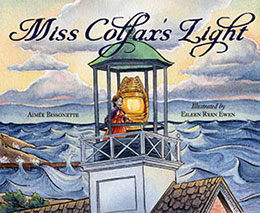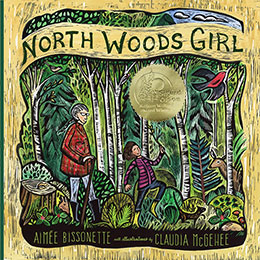Where do successful nonfiction writers get their ideas? So many places! The topics a nonfiction writer can write about are limitless. Sure, some ideas have been written about before, but nonfiction writers take that as a challenge. They ask what unusual angle they might take or if there is a different (or better) format in which to deliver the information. Is there a way to add mystery or intrigue? Is there a little known fact beyond that’s not commonly known?
Yes, nonfiction topics are limitless. Truth be told, though, it can be hard for nonfiction writers to settle on a particular idea even when they’re swimming in a sea of them. This is particularly true for young writers who are trying their hand at writing nonfiction for the first time. Young writers not only have to come up with engaging ideas, but they have to master a bevy of other skills in their early writing assignments: how to write a rough draft, choose rich words and phrases, order events, use proper punctuation, and more. Choosing a topic sometimes only adds to the anguish.
So how can we help young writers see that good nonfiction ideas are all around them? How can we help them discover a topic that excites them and makes their writing more enjoyable? We need to teach them to do what other nonfiction writers do: dive deep!
Here are some suggestions — tried and true — from someone who swims in that sea and is on the hunt for new ideas every day:
Expand your social network. Befriend people of different ages, backgrounds, regions of the country or professions. Talk to them about what interests them and what is happening where they live. Friends and family members often have great suggestions for nonfiction topics based on things they’ve experienced that you have not.
 Read broadly. Read regional newspapers with stories that have not broken nationally or specialized publications for people with specific interests (e.g. dog magazines, travel magazines). Read about current and historical events, other countries, music, books, food, culture, and traditions. I got the idea for Miss Colfax’s Light from a small excerpt I read in another book about women of the Great Lakes. I wrote Aim for the Skies after reading Jerrie Mock’s obituary in an Ohio newspaper.
Read broadly. Read regional newspapers with stories that have not broken nationally or specialized publications for people with specific interests (e.g. dog magazines, travel magazines). Read about current and historical events, other countries, music, books, food, culture, and traditions. I got the idea for Miss Colfax’s Light from a small excerpt I read in another book about women of the Great Lakes. I wrote Aim for the Skies after reading Jerrie Mock’s obituary in an Ohio newspaper.
 Spend time in nature. Do you know there are scientific studies that prove that our creativity is boosted when we spend time outdoors? It’s true. And when we get outdoors, we also see that nature provides an endless supply of things to write about — like the animals, plants, and changing seasons depicted in my book North Woods Girl. I have several works in progress that focus on the natural world — all of which are the result of hiking, canoeing, and taking photographs in the great outdoors. When I am stumped for ideas, I put on my walking shoes and head out.
Spend time in nature. Do you know there are scientific studies that prove that our creativity is boosted when we spend time outdoors? It’s true. And when we get outdoors, we also see that nature provides an endless supply of things to write about — like the animals, plants, and changing seasons depicted in my book North Woods Girl. I have several works in progress that focus on the natural world — all of which are the result of hiking, canoeing, and taking photographs in the great outdoors. When I am stumped for ideas, I put on my walking shoes and head out.
Talk with experts. Experts are chock-full of information and most of them love to share it. Just ask! And if you are thinking you don’t know any real experts, keep in mind there are “everyday experts” all around us who know about all sorts of things. Have you ever toured a fire station with a firefighter? I have. And I learned lots of cool stuff when I did. For instance, did you know that firefighters have to use special washers and dryers to clean their gear to remove carcinogens? Or that they have to hang their fire hoses after fighting fires so the hoses can dry out? (Which — fun fact — also means they need more than one set of hoses for their trucks!) Talking to an expert helps you learn uncommon and interesting facts you can share in your nonfiction work.
Visit websites that report on fun facts and oddities. There are a number of websites that specialize in investigating and reporting all sorts of fun facts — facts that make great nonfiction topics. Here are a few of my favorites:
Now I Know email newsletter (and website with archives) by Dan Lewis
Eurekalert! The Global Source for Science News
When reading material on these sites, I try to keep an eye out for “tip of the iceberg” fragments or “unturned stones.” There are always bits of unmined material there — ideas that lie buried or hidden under other information. That information is perfect for a nonfiction piece.

Be sure to choose an idea you love. Once you settle on an idea, the research and writing begins. That takes time and energy — so don’t choose a topic you’re only mildly interested in or your work might start to feel like just another assignment. You want the excitement you feel for your topic to show in your work. You want your readers to feel that excitement, too. The best way to do this is to choose a topic you truly enjoy — perhaps one you always wished someone else had written about so you could read it.
In her lesson plan “Calling all Nonfiction Writers,” Maggie Knutson suggests a number of questions teachers can ask students when selecting nonfiction topics for their writing. I’ve included a few of her proposed questions below. You can find her whole lesson plan here. Questions like these help guide writers, young and old, in their search for good nonfiction ideas. They help writers choose ideas they care about — and that contributes to writing success.
So tell your young writers to put on their flippers, snorkels, and masks and dive in! Tell them to swim around in a big sea of ideas — one they’ve generated themselves using some of the suggestions above. They are sure to find one that is a good fit. Then, let the writing begin.
Questions for Students
Brainstorm a list of all the possible topics about which you might write. Don’t judge them or exclude anything that pops into your mind.
- Think about each topic with your eyes closed. Notice how you feel. Does the topic excite you? Does your body get warm, cold, or feel something else, such as energized, heavy, sad, happy, or excited? Do ideas begin to come to mind?
- Do a two-minute quick write on your topics — use notes, keywords, or bullet points, not full sentences.
- Based on your quick write, choose the topic that most appeals to you.



